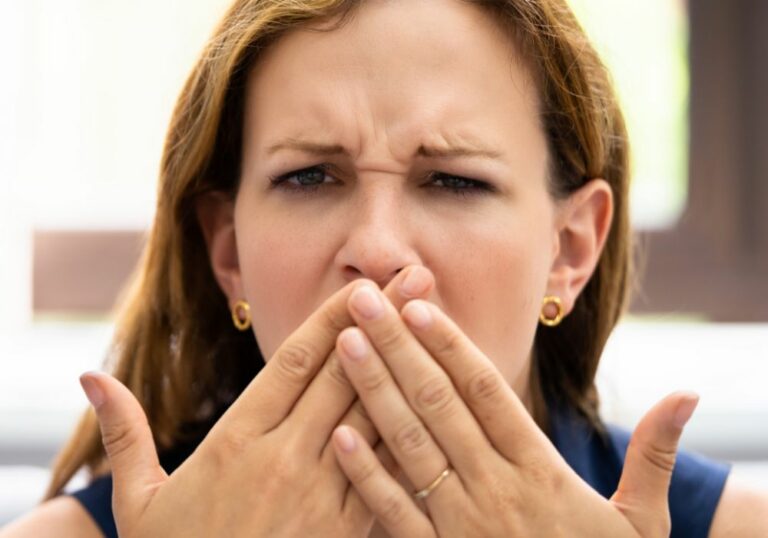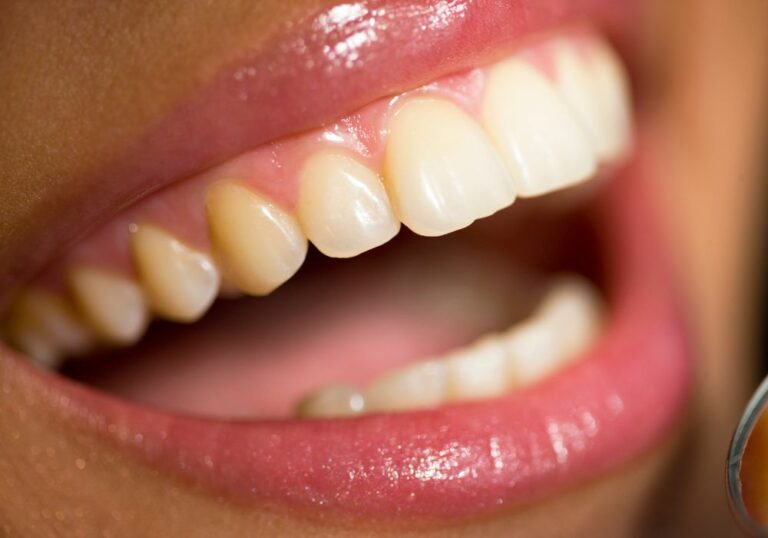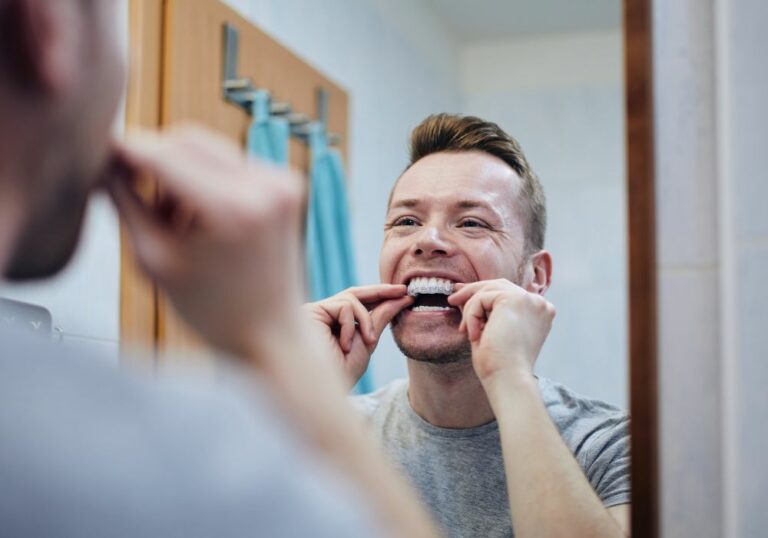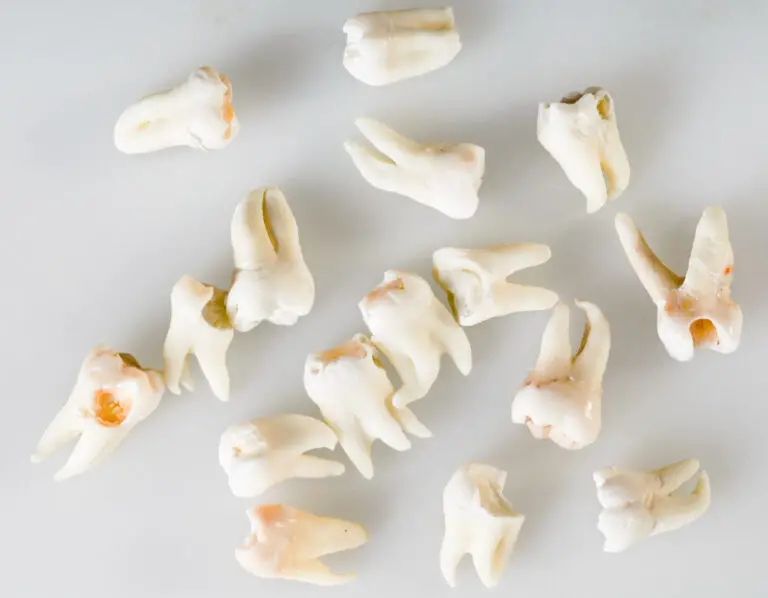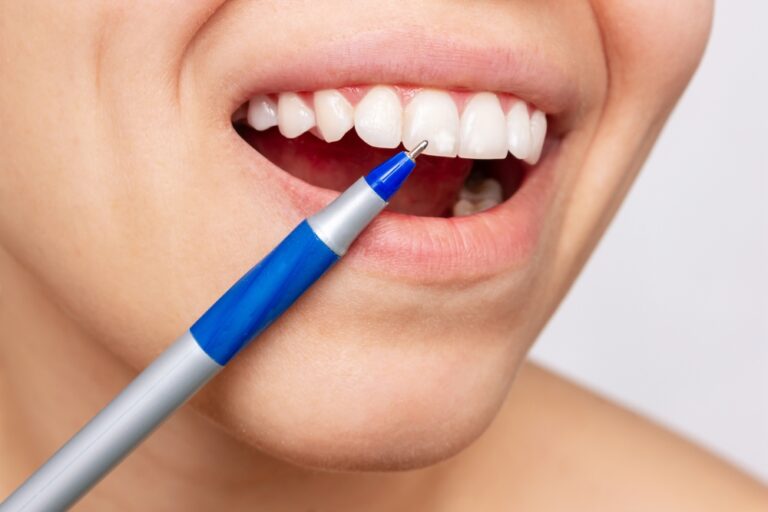Are you worried about your teeth falling out after getting braces? It’s a common concern, but the good news is that braces will not make your teeth fall out. However, it’s normal to experience some discomfort and slight looseness in your teeth after getting braces.
Braces work by applying pressure to your teeth, gradually moving them into the desired position. This pressure can cause your teeth to feel loose, but it’s a sign that the braces are doing their job. In most cases, any looseness in your teeth will only be temporary and will go away as your teeth become more aligned.
While braces won’t make your teeth fall out, it’s important to take good care of your teeth during and after treatment to prevent any issues. Poor oral hygiene can lead to tooth decay and gum disease, which can cause your teeth to become loose or even fall out. It’s important to brush and floss regularly and attend regular dental check-ups to keep your teeth healthy.
Understanding Braces and Their Purpose
If you’re considering getting braces, it’s important to understand what they are and how they work. Braces are dental devices that are used to straighten crooked teeth and correct an abnormal bite. They can also prevent and correct problems caused by overcrowded teeth or too much space between teeth.
Braces work by applying gentle pressure to your teeth over time, gradually moving them into the desired position. The pressure is applied through the use of brackets, wires, and rubber bands. The brackets are attached to your teeth using a special adhesive, and the wires are threaded through the brackets. The rubber bands are used to apply additional pressure to your teeth, helping to move them into the correct position.
There are several different types of braces available, including traditional metal braces, ceramic braces, and lingual braces. Traditional metal braces are the most common type and are made of metal brackets and wires. Ceramic braces are similar to metal braces, but the brackets are made of clear or tooth-colored material, making them less noticeable. Lingual braces are attached to the back of your teeth, making them virtually invisible.
Braces can be a great option for people who want to improve the appearance of their smile and correct dental problems. However, it’s important to keep in mind that braces require a significant commitment. You will need to visit your orthodontist regularly for adjustments, and you will need to take good care of your teeth and braces to ensure the best possible results.
Post-Braces Period: What to Expect
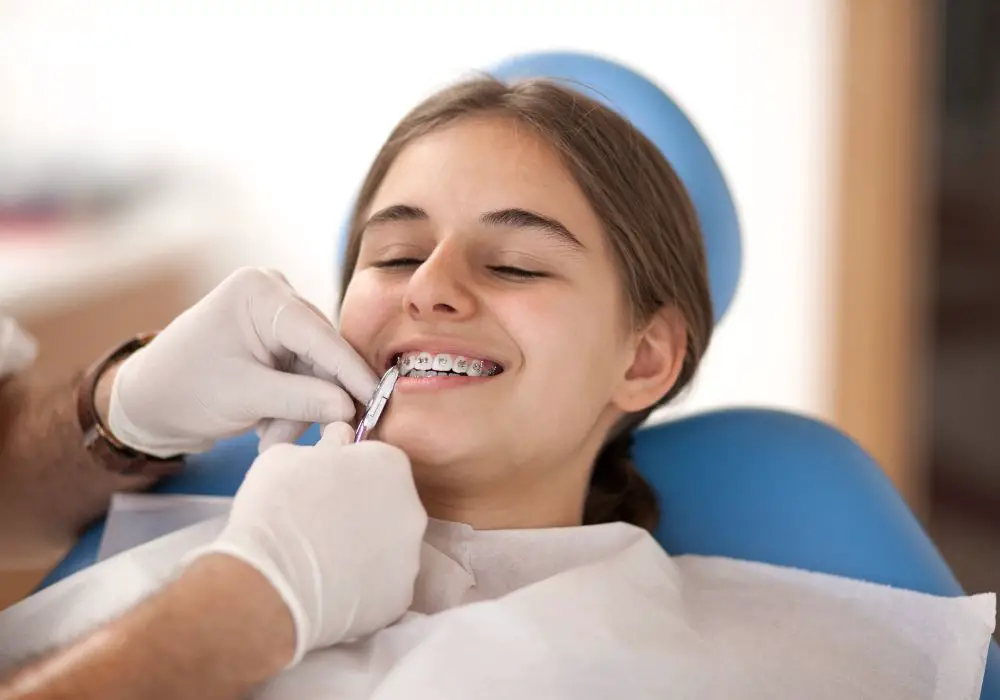
After spending months or even years wearing braces, you’re probably excited to have them removed and see your new smile. However, it’s important to understand that the post-braces period is just as important as the time you spent wearing braces. Here’s what you can expect during this period:
Teeth Shifting
After your braces are removed, your teeth will naturally want to shift back to their original position. This is because the bone and gum tissue around your teeth need time to adjust to their new position. It’s important to understand that teeth shifting is normal and expected, but there are things you can do to minimize it.
One of the most effective ways to prevent teeth shifting is to wear a retainer. Your orthodontist will likely recommend that you wear a retainer for a certain period of time after your braces are removed. This will help keep your teeth in their new position while the bone and gum tissue around them adjust.
Retainer Usage
Wearing a retainer is an important part of the post-braces period. Your orthodontist will provide you with specific instructions on when and how to wear your retainer. It’s important to follow these instructions carefully to ensure that your teeth stay in their new position.
There are several types of retainers available, including removable and fixed retainers. Removable retainers are typically made of plastic and are worn for a certain number of hours each day. Fixed retainers are bonded to the back of your teeth and are worn indefinitely.
No matter what type of retainer you have, it’s important to keep it clean and well-maintained. Your orthodontist will provide you with instructions on how to clean your retainer and how often to bring it in for adjustments.
In conclusion, the post-braces period is an important time for maintaining your new smile. By understanding what to expect and following your orthodontist’s instructions, you can ensure that your teeth stay in their new position and your smile remains beautiful for years to come.
Can Teeth Fall Out After Braces?
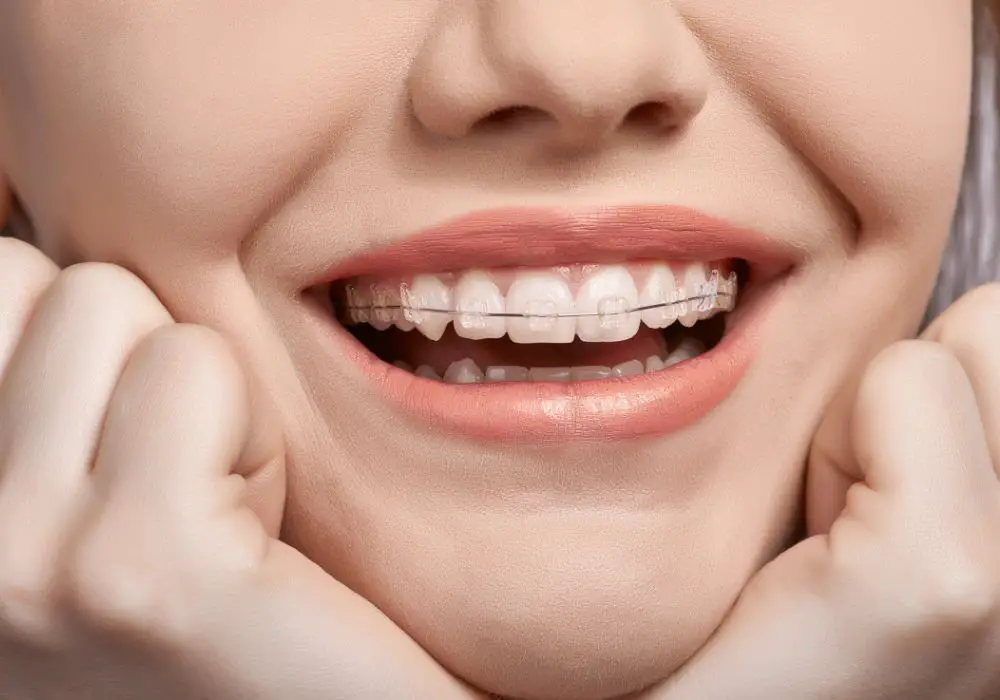
You may be wondering if your teeth can fall out after braces. The answer is no, braces will not cause your teeth to fall out. However, there are some reasons why your teeth may fall out after braces.
One reason is poor dental hygiene. If you do not take care of your teeth properly, you may develop gum disease or tooth decay, which can cause your teeth to become loose and fall out. It is important to brush your teeth twice a day, floss regularly, and visit your dentist for regular checkups and cleanings.
Another reason why your teeth may fall out after braces is if you have a genetic predisposition to gum disease. In this case, your gums may not be able to support your teeth properly, which can cause them to become loose and fall out.
It is also possible for teeth to fall out after braces if they were already loose before treatment began. Braces can help to straighten teeth, but they cannot fix teeth that are already loose.
If you are experiencing any problems with your teeth after braces, it is important to speak with your dentist or orthodontist. They can help to determine the cause of the problem and recommend the appropriate treatment.
In summary, braces will not cause your teeth to fall out, but poor dental hygiene, genetic predisposition to gum disease, and pre-existing loose teeth can lead to tooth loss. Take care of your teeth and visit your dentist regularly to maintain good oral health.
Factors That Could Lead to Tooth Loss
When you have braces, it’s important to take extra care of your teeth to prevent tooth loss. Here are some factors that could lead to tooth loss:
Poor Oral Hygiene
If you don’t brush and floss your teeth regularly, you’re more likely to develop tooth decay and gum disease. These conditions can cause your teeth to become loose and fall out. When you have braces, it’s important to brush and floss after every meal to remove food particles and plaque that can build up around your brackets and wires.
Underlying Dental Issues
If you have underlying dental issues, such as periodontal disease or tooth decay, your teeth may be more prone to falling out. These conditions can weaken the structure of your teeth and gums, making them more susceptible to damage. If you have any dental issues, it’s important to address them before getting braces to reduce your risk of tooth loss.
Physical Trauma
Physical trauma to your mouth, such as a sports injury or accident, can cause your teeth to become loose or fall out. When you have braces, it’s important to wear a mouthguard during physical activity to protect your teeth from injury.
By taking care of your teeth and addressing any underlying dental issues, you can reduce your risk of tooth loss when you have braces. Be sure to follow your orthodontist’s instructions for proper oral hygiene and wear a mouthguard during physical activity to protect your teeth.
Preventing Tooth Loss After Braces

After getting your braces removed, you may be worried about your teeth falling out. While it is rare for teeth to fall out after braces, there are still steps you can take to prevent it from happening. Here are some tips to help you maintain a healthy smile:
Regular Dental Check-Ups
It is important to continue seeing your dentist regularly after getting your braces removed. Your dentist will be able to monitor your oral health and catch any potential issues early on. During your check-ups, your dentist may also recommend deep cleanings or other treatments to keep your teeth and gums healthy.
Proper Retainer Use
Wearing your retainer as directed by your orthodontist is crucial for maintaining the alignment of your teeth after braces. Failing to wear your retainer can cause your teeth to shift back to their original positions, which can lead to tooth loss. Make sure to clean your retainer regularly and replace it as needed.
Maintaining Good Oral Hygiene
Proper oral hygiene is essential for preventing tooth loss after braces. Brush your teeth twice a day, floss daily, and use mouthwash to keep your teeth and gums healthy. Avoid sugary and acidic foods that can damage your teeth, and drink plenty of water to help rinse away bacteria and food particles.
In addition to these tips, it is important to avoid bad habits that can damage your teeth, such as biting your nails, chewing on ice or hard objects, and using your teeth to open packages or bottles. By following these guidelines, you can help ensure that your teeth stay healthy and strong after braces.
Frequently Asked Questions
What should I do if my teeth feel loose after braces?
If your teeth feel loose after braces, don’t panic. This is a normal and expected part of the orthodontic treatment process. However, if you experience any severe pain or discomfort, contact your orthodontist immediately. They can provide advice on how to manage any discomfort and ensure that your teeth are healthy and secure.
Is it normal for teeth to feel loose after braces?
Yes, it is normal for teeth to feel loose after braces. This is because the braces have been applying pressure to your teeth, causing them to shift into a new position. As your teeth adjust to their new position, they may feel slightly loose. This is a temporary sensation and should subside within a few days.
Can teeth fall out with Invisalign treatment?
Invisalign treatment is designed to be a safe and effective way to straighten teeth without the need for traditional braces. While it is rare for teeth to fall out during Invisalign treatment, it is possible if the treatment is not managed properly. To minimize the risk of tooth loss, make sure to follow your orthodontist’s instructions carefully and attend all scheduled appointments.
How can I prevent my teeth from becoming loose after braces?
To prevent your teeth from becoming loose after braces, it is important to follow your orthodontist’s instructions carefully. This may include wearing a retainer as directed, maintaining good oral hygiene, and avoiding hard or sticky foods that could damage your teeth. Regular dental checkups can also help to ensure that your teeth remain healthy and secure.
What causes teeth to become loose after braces?
Teeth may become loose after braces due to the pressure applied by the braces, which can cause the teeth to shift into a new position. In some cases, teeth may also become loose due to gum disease, tooth decay, or other underlying dental issues. If you are concerned about loose teeth after braces, contact your orthodontist for advice.
Why do some people experience loose teeth after braces?
Some people may experience loose teeth after braces due to individual differences in the way that their teeth and gums respond to orthodontic treatment. Additionally, certain factors such as poor oral hygiene, gum disease, or tooth decay can increase the risk of loose teeth after braces. If you are concerned about loose teeth after braces, speak to your orthodontist for guidance.

